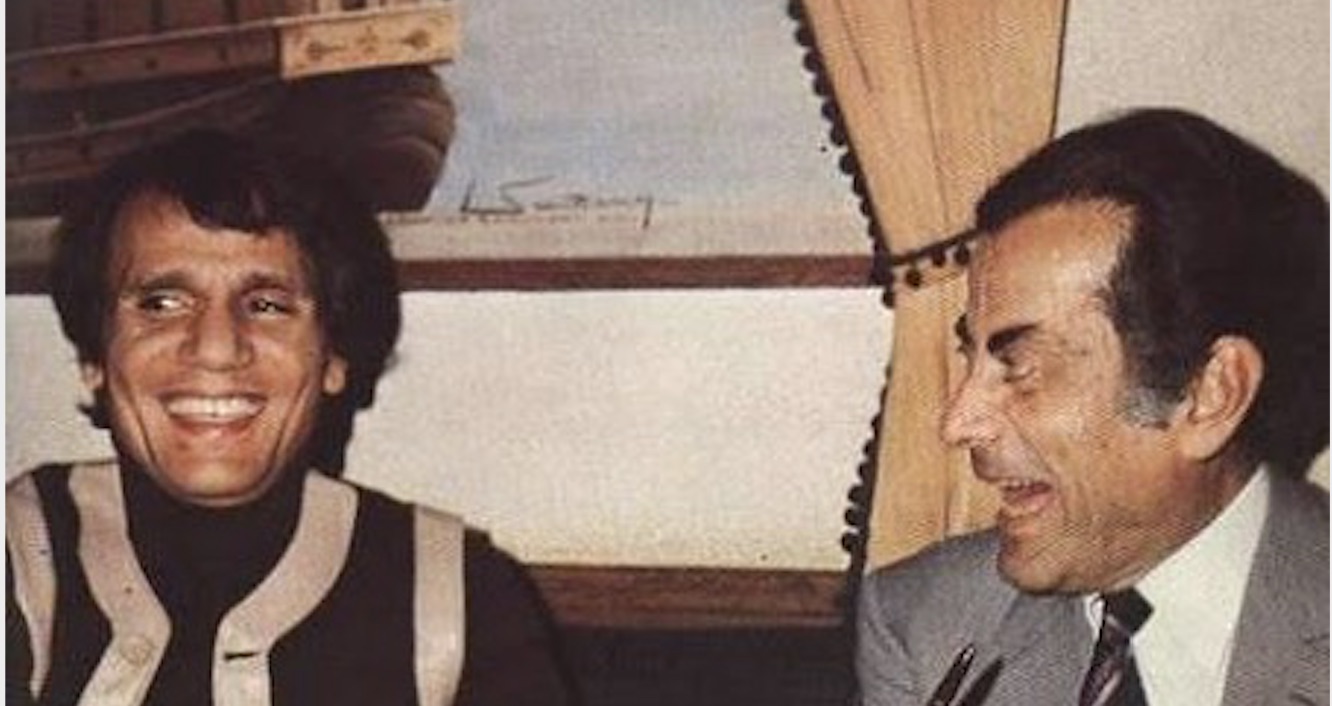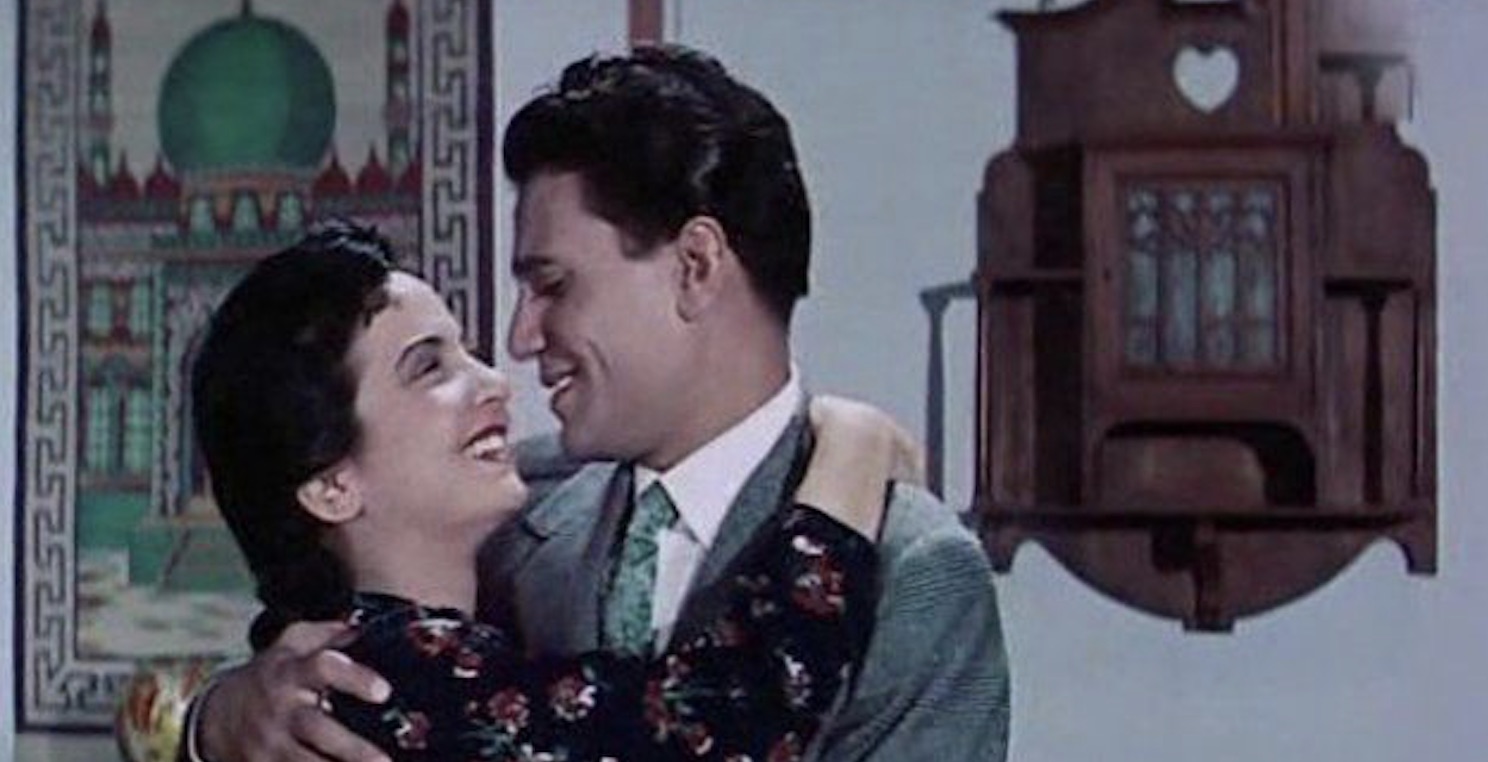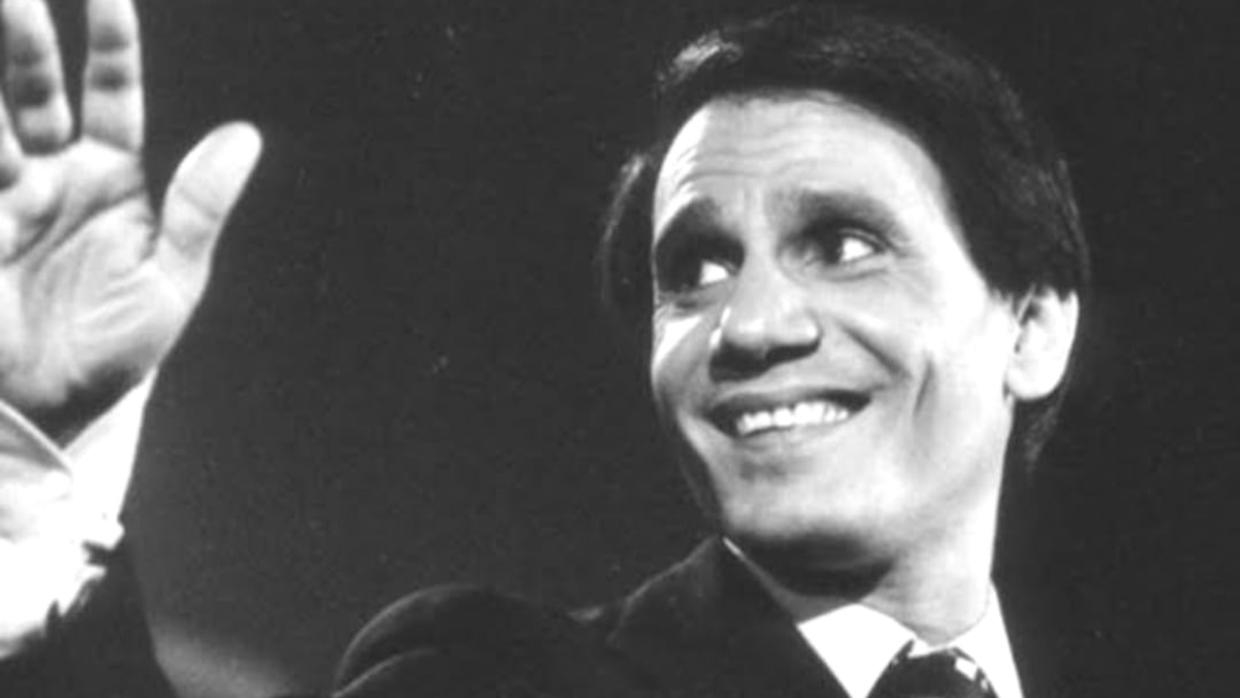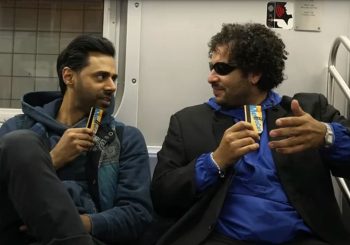A tender voice that sang sweet and soft melodies, a musical giant loved by all, and a bequest of national pride: Abdel Halim Hafez is an Egyptian icon.
Born as Abdel Halim Ali Shabana in El Sharqiya in 1929, the young boy was orphaned at an early age of five years old. He was raised, alongside his three siblings, by his maternal uncle.
His love for music was nurtured by his older brother, Ismail, who was a public school music teacher. In 1943, he entered the High Arab Music Institute in Cairo, where he learned to play different musical instruments such as the piano, oud, clarinet, guitar, and oboe.
He later became a school music teacher until 1950 when he was discovered by a radio executive, and got his first opportunity to shine at the Egyptian National Radio Station, playing the oboe.
From this point forward, the name of Shabana was left behind, and Hafez, his stage name, was born. From his debut in the early 1950s, Abdel Halim’s concerts were an immediate success. He had a special connection with his audience – where simplicity and warmth reigned.
In his heyday, Hafez was truly enamored by Egyptians, and later the Arab region and the world alike. He was nicknamed ‘El Andaleeb El-Asmar,’ (The Dark-Skinned Nightingale), for his voice, which later became a cultural phenomenon in the region.
He was also referred to as ‘Malek Al Romanseya,’ (King of Romance), ‘Safir El Hob,’ (Ambassador of Love), and the ‘Ebn El Thawra,’ (Son of the Revolution), ‘Sot El Nas,’ (The Voice of the People).
His music instilled national pride in Egyptians, ‘Ebn El Thawra,’ established a strong relationship with former Egyptian president Gamal Abdel Nasser.
He is considered among the ‘Great Four of Arab Music’ along with Umm Kulthum, Mohammad Abdul Wahab and Farid Al Atrash.

Abdel Halim was a man of many talents, he was a singer, composer, and actor. He starred in some of the most memorable movies during the golden age of Egyptian cinema, such as ‘Abi Foq Al Shagara,’ (My Father Above the Tree) in 1969 and ‘Ayam w Layali,’ (Days and Nights) in 1955, and ‘Dalila,’ the first colored film in the Middle East in 1956.

Abdel Halim’s songs had the ability to draw on the emotions of his audience, his patriotic and emotional love songs, such as ‘Nasser ya Horreya,’ (Nasser the Freedon), ‘Ahwak,’ (I Adore You), ‘Betlomooni Leh,’ (Why Do You Blame Me), and ‘Maw’ood,’ (Promised) live on to this day.
His songs are known worldwide — his popular song “Khosara”, (Loss), composed by Baligh Hamdy, was sampled by American singer Jay-Z in 1999 in his song ‘Big Pimpin,’ which resulted in a copyright lawsuit in which Jay-Z won.
He also appeared in 16 musical films which featured his most popular songs that spanned nearly three decades.
Unfortunately, in 1955, Abdel Halim’s health started taking a turn for the worse. He was diagnosed with a waterborne parasitic disease, called bilharzia, at a young age. In later years, bilharzia caused him severe health issues that started taking a toll on his life.
Although it never affected his emotional attachment to singing as he continued producing and singing at top speed, it is believed his songs had a sadder tone to them.
Well-known Egyptian songwriter Hilmi Bakr put it this way: “His was a unique singing career. His voice wasn’t great or strong but he was in a school of his own in a world of expression and feeling. His voice didn’t depend on its strength or high pitch, it was the expression and feeling in his singing, and the vocabulary of the poet he communicated in harmony during his performance.”
Abdel Halim passed away at only 48 years old due to complications from his chronic disease, and a whole region grieved.
Nearly 45 years after the icon’s passing, his legacy still transcends time. In 1977, The New York Times referred to Abdul Halim as the Elvis Presley and Frank Sinatra of the Arab world.
Late Syrian poet Nizar Al Qabbani, whose Arabic poem ‘Qari’at Al Fingan’ (The Fortune Teller) was the last song Abdul Halim sang in 1977, explained that “the secret of Abdul Halim was that he sang with power, pride and determination. Challenging the impossible, he sang honestly to the people. That is rare to repeat, and people loved him in the same honest way.”







Comments (7)
[…] على عينة من الأغنية كسارة (إنه عار) من قبل الأيقونة عبد الحليم حافظ. وشهدت الحلقة التجريبية أيضا أغنية المصرية نجاة […]
[…] عبد الحليم حافظ: قصة العندليب المصري ذو البشرة الداكنة […]